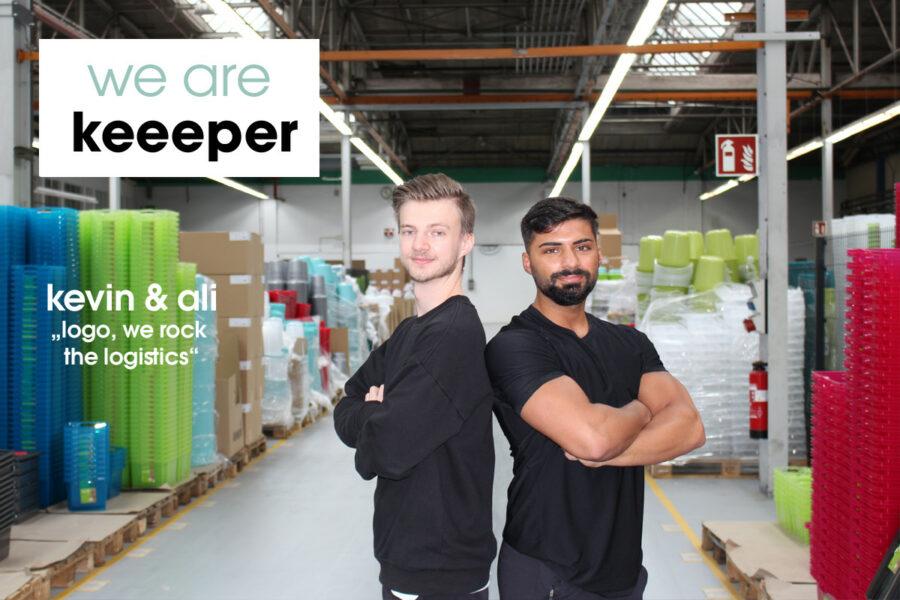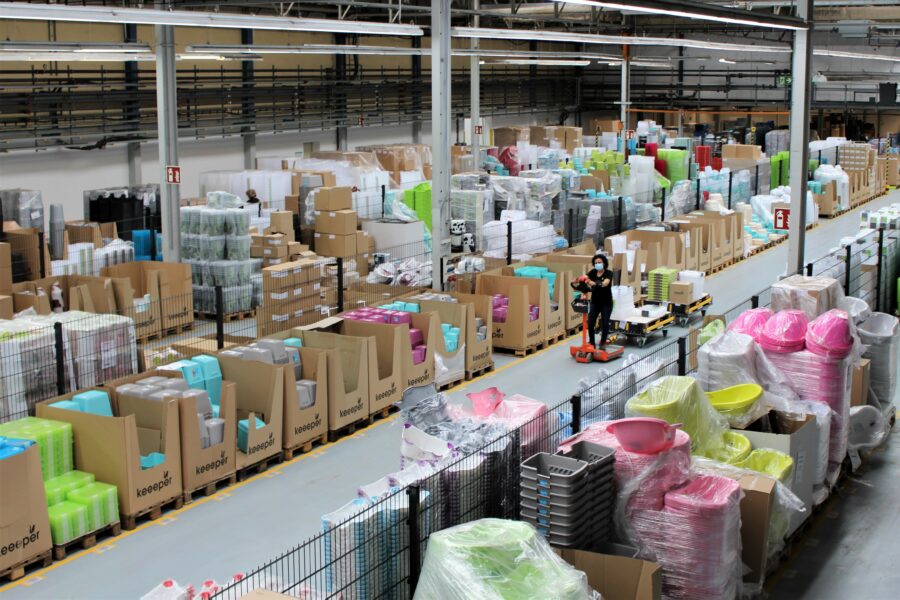Are you interested in an apprenticeship in the field of logistics? No problem! Here at keeeper GmbH in Stemwede, we train two professions in the field of warehouse/logistics. These are the warehouse logistics specialist and the warehouse specialist. But what are the exact differences? And what is meant by the term logistics?

Logistics means the planning, coordination and delivery control of raw materials and products.
It ensures that the required goods arrive in the agreed quantity, in the right condition, at the right place, at the right time, to the right customer at the right cost. The idea behind this is a smooth supply chain from the manufacturer to the customer.
Entrance Requirements:
The entry requirement for both apprenticeships is successful completion of secondary school. Each is a dual vocational training program. This means that both the vocational school and the training company are attended weekly. The warehouse logistics specialist is a bit more demanding and you take on more responsibility. This training takes three years. The warehouse specialist, on the other hand, completes the training in two years.
In school, the subject’s Mathematics, German and English are covered. Mathematics is needed to determine warehouse ratios. Warehouse ratios provide information, for example, about how efficiently the storage bins are utilized and how much personnel is needed. Good German skills are needed, for example, when filling out freight, shipping and warehouse documents, and you may need foreign languages for contacts with foreign suppliers.
What are the differences?
Many activities are the same in both professions.
An employee must accept and inspect deliveries, store and process goods, and transport goods around the plant. Both must ship and pick goods. In order picking, goods and merchandise are staged according to the order. This is a special focus for logistics specialists and comprises about 20% of the training. The logistics specialist also learns how to optimize logistics processes, how to plan tours and how to determine and evaluate key figures. Special computer programs provide support for such tasks. As a logistics specialist, you will also learn how to procure goods, i.e. how to create purchase orders and delivery bills.
The two apprenticeship occupations pass through similar departments. These include picking, assembly and support. They also work in the forklift area and in loading and the shipping office. Warehouse logistics specialists also gain insight into the purchasing and sales departments.

The requirements of the two vocational training programs are the same:
One needs a good physical constitution, which makes it possible, for example, to work in partly unheated and open warehouses as well as air-conditioned offices. Furthermore, good organizational skills and diligence are required, for example, to correctly arrange loading and unloading times and deliveries for shipping. A good three-dimensional vision is important, for example, in order to stow goods in the warehouse, taking into account the type of goods, their nature, volume and weight. In addition, one needs prudence and a sense of responsibility, for example, when operating conveyor systems or lifting equipment and during transport.
All in all, the two professions in logistics are very varied. If you are looking for a job where you keep moving and don’t just sit at a desk, the warehouse is the right place for you. The working atmosphere is very good because colleagues have to work hand-in-hand with each other.
Have we aroused your interest? Then apply now and become a keeeper!


